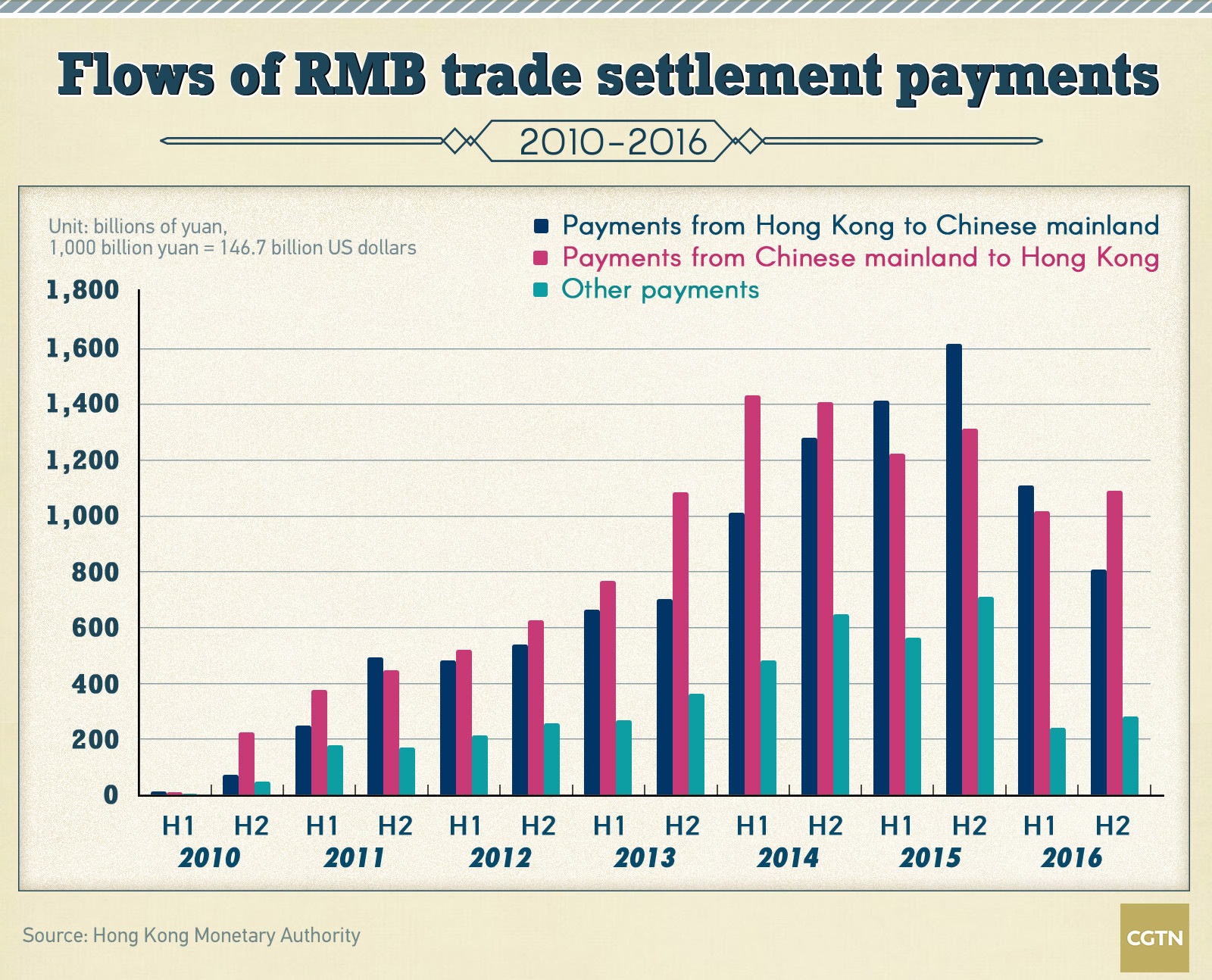Hong Kong is the world’s fourth most important financial center, just after London, New York and Singapore.
It is also the world’s largest offshore yuan trading hub.
By 2016, more than half of all shares listed in Hong Kong were Chinese mainland companies. Their capitalization is about two thirds of Hong Kong’s stock market total, and their shares made up 71 percent of the average daily trade volume.
Hong Kong is seeing a 20-percent discount of its shares relative to mainland shares, providing a fairer valuation for global investors.
For mainland companies, Hong Kong provides better access to the global capital than the mainland market.

That is why the stock market cap in Hong Kong exploded to 3.6 trillion US dollars in 2016, eight times that in 1997.
Mainland investments gave Hong Kong a cash boost during the 1997 Asian financial storm, and the 2008 global financial crisis. The money eased strains in Hong Kong and boosted the mainland’s economic influence in the city.
Meanwhile, the mainland continues to capitalize on Hong Kong for wider international exposure. Stock and bond trading links between the mainland the Hong Kong have been put in place, paving the way for the mainland market to be included in the MSCI, the world’s most important stock indices.









